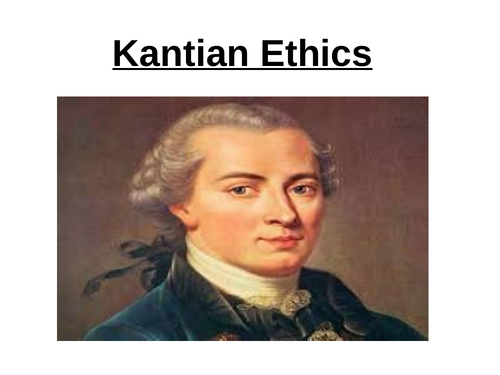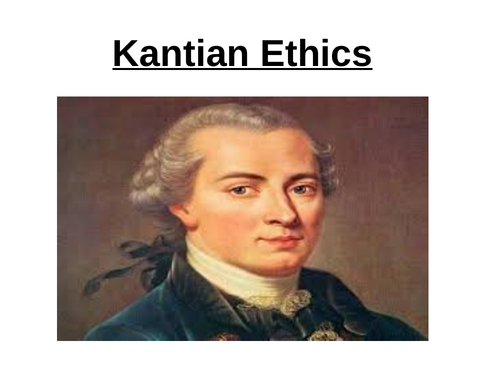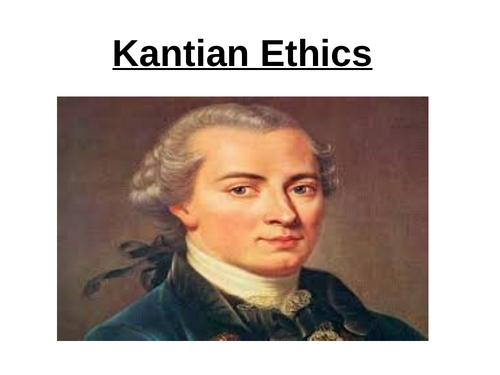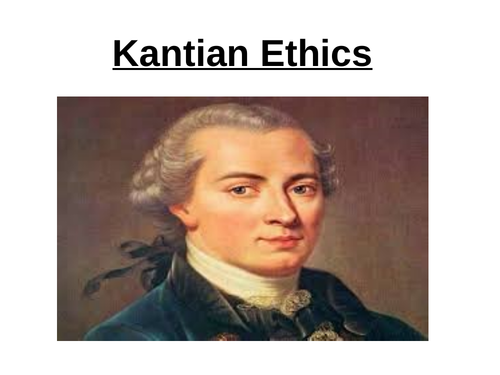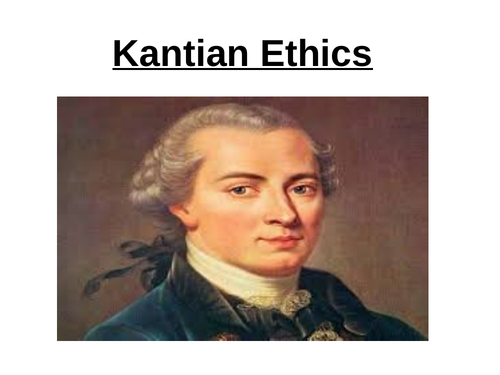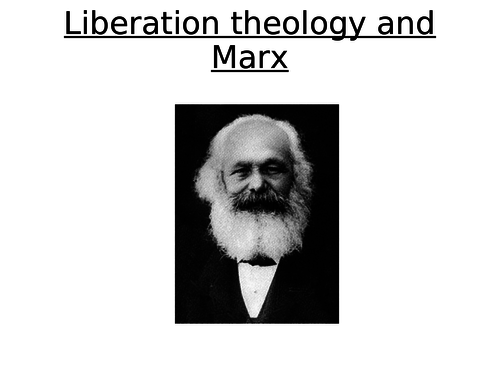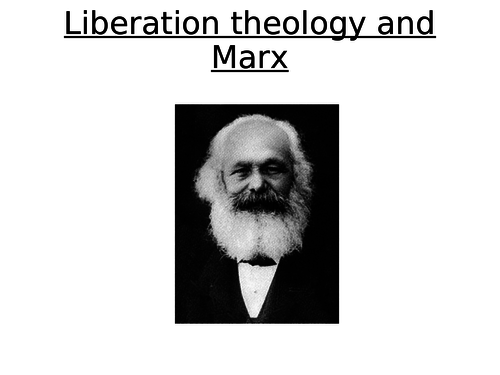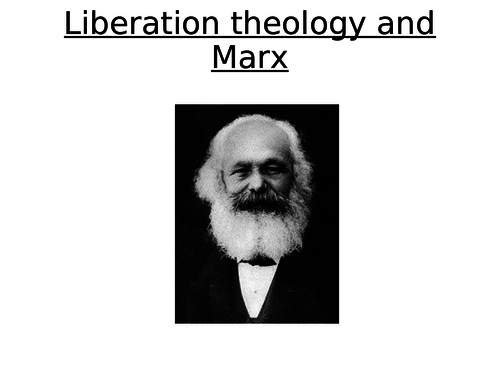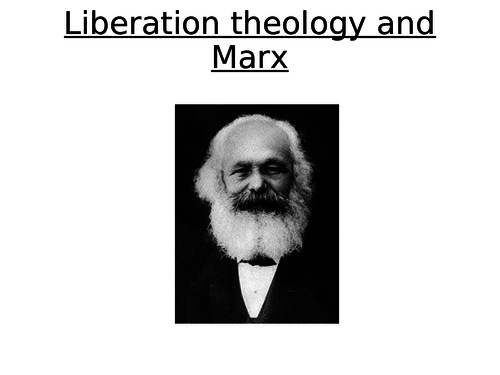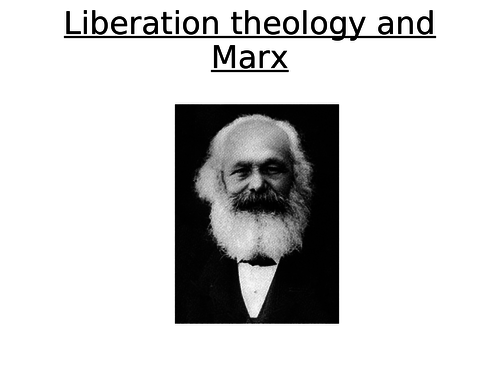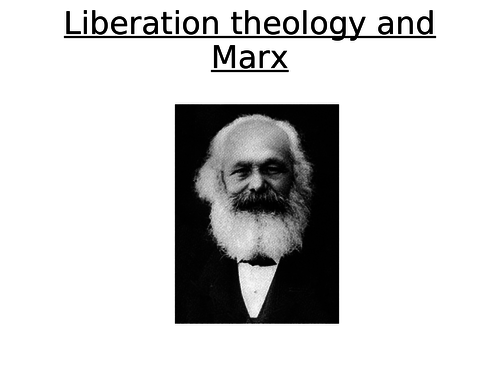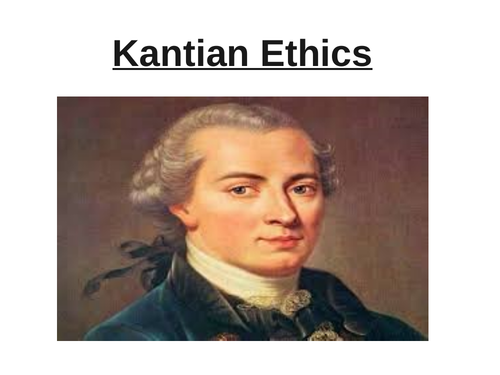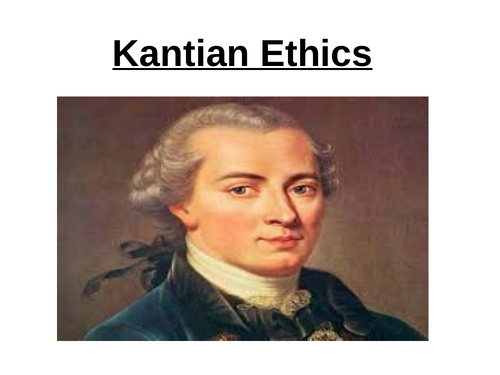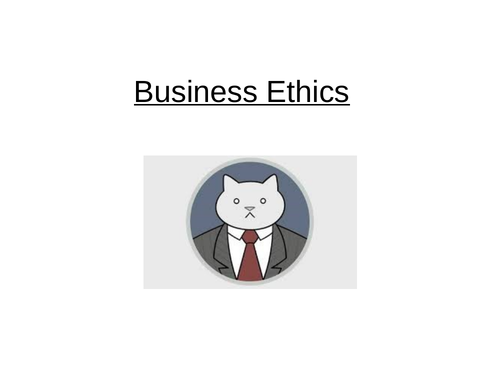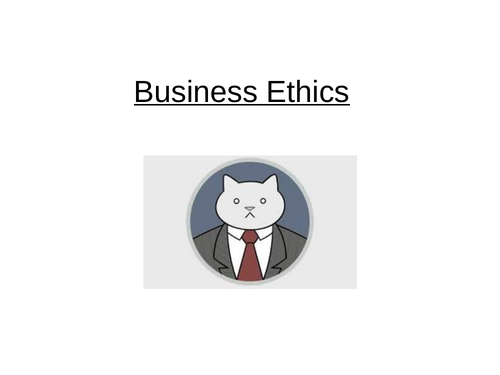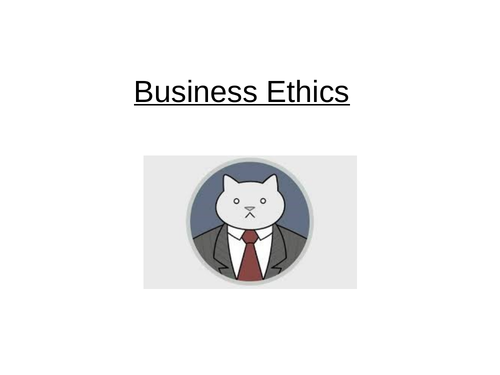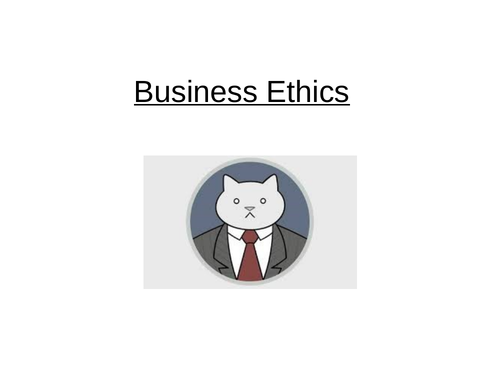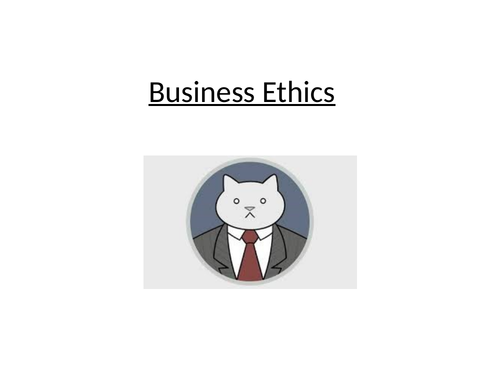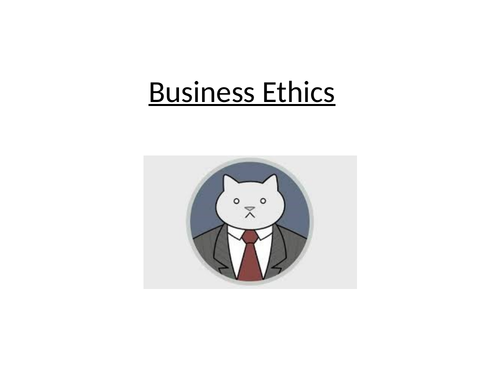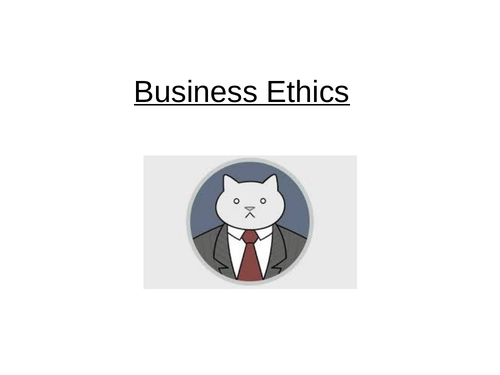
36Uploads
7k+Views
846Downloads
Philosophy and ethics

Kant's understanding of morality being a-priori synthetic
OCR Kantian Ethics. This powerpoint helps students to understand the ways of judging and perceiving morality. Including the terms a-priori, a posteriori, synthetic and analytic including Kant’s ideas that morality is a-priori synthetic.

Kant's first formulation of the categorical imperative
Kantian Ethics OCR. This powerpoint helps students to understand universalisation, contradiction in conception , contradiction in will and critically analyse whether universalising not lying is something which is moral.

Kantain Ethics the third formulation of the categorical imperative
Kantian Ethics OCR. This powerpoint helps students to be able to explain the 3rd formulation of the categorical imperactive. Students attempt to apply the 3rd formulation in order to establish rules for a community where all its members would flourish.

Kantian Ethics the 2nd formulation of the categorical imperative
Kantian Ethics OCR. This powerpoint helps students to understand what treating someone as a means to an end means, applying this to examples and critically assess whether this aspect of Kant’s theory is strong or weak.

OCR Kantian Ethics Kant's concept of duty
OCR Kantian Ethics. This powerpoint aims to give a basic explanation of what Kant understood by duty, with examples from him and some concerns with the concept of duty.

OCR A Level Liberation Theology The Catholic Church and Liberation Theology
This is the Liberation Theology Module in Developments in Christian Thought. It focuses on reasons why the Church has reservations about the use of Liberation Theology, whether the Church is correct and whether the Church should use any theories which contain secular ideologies.

OCR A Level Liberation Theology Preferential Treatment for the Poor
This is the Liberation Theology Module in Developments in Christian Thought. It focuses on reasons Christians would choose preferential treatment for the poor, John Paul II’s understanding of preferential treatment for the poor and whether it is right to prioritise the poor over another group from a Christian standpoint.

OCR A Level Liberation Theology's use of Marx
This is the Liberation Theology Module in Developments in Christian Thought. It focuses on understanding ideas from Marx are used in Liberation Theology, Guttierez’s ideas about how the Latin American Church should apply Marxism and whether Christianity should stay out of politics or whether it should try to bring change for the poor.

OCR A Level Liberation Theology and Marxism engaging with each other
This is the Liberation Theology Module in Developments in Christian Thought. It focuses on why some philosophers argue that there is too much engagement with Marxism and others too little. It also considers whether despite its atheistic nature Marxism and Christianity can still engage.

OCR A Level Liberation Theology Orthodoxy and Orthopraxis
This is the Liberation Theology Module in Developments in Christian Thought. It focuses on whether the three mediations of second act praxis are useful in understanding how to help the poor.

OCR A Level Liberation Theology Christianity and Marx's approach to social Issue
This is the Liberation Theology Module in Developments in Christian Thought. It focuses on understanding Marxism’s approach to social issues and to know Christianity’s approach. It considers reasons why Christianity may be considered more hopeful and relevant than Marx in tackling poverty and evaluates whether Marx , Christianity of a combination of the two should be used to tackle social issues.

Is Kantian Ethics helpful
Kantian Ethics OCR . This powerpoint gives examples from Pojman which show Kantian ethics is not wholly successful. It looks at whether motive or consequences are more important in ethical decision making and considers whether Kantian ethics is too abstract when it comes to deciding right and wrong action.

Kantian Ethics a discussion of the three postulates
Kantian Ethics OCR. This powerpoint enables students to be able to outline the three postulates, Freedom, Immortality and God and demonstrate how they link to each other. They also evaluate whether the concept of freedom, immorality or God is of more value.

Business and Stakeholders
This resource is for OCR Philosophy and Ethics and is focused on the Business Ethics Unit. This resource explains what stakeholders are and explains why corporate responsibility may extend to them. It also considers whether business can choose to ignore stakeholders when making decisions.

Globalisation
This resource is designed for OCR Religious Studies Philosophy and Ethics. It is appropriate for use in the business section in ethics. It explains what globalisation is and whether it is ethical or not. It also considers case studies which may apply.

Whistleblowing
This resource is designed for OCR Religious Studies Philosophy and Ethics. It focuses on what whistleblowing is and whether this is ethical whilst linking to case studies concerning whistleblowing.

Business and Corporate Social Responsibility.
This resource is for OCR Philosophy and Ethics and is focused on the Business Ethics Unit. It discusses Friedman’s view concerning corporate social responsibility and why business’ need to take into account corporate social responsibility.

Utilitarianism and Business Ethics
This is a resource designed for OCR Religious Studies: Philosophy, Ethics and Development of Christian Thought. It is specifically aimed at the Business section of Ethics. It considers the way Utilitarianism may view whistleblowing, globalisation and corporate social responsibility and asks students to apply certain business scenarios to Utilitarianism.

Kant and Business Ethics
This is a resource designed for OCR Religious Studies: Philosophy, Ethics and Development of Christian Thought. It is specifically aimed at the Business section of Ethics. It considers the way Kant may view whistleblowing, globalisation and corporate social responsibility and asks students to apply certain business scenarios to Kantian Ethics.

Is good ethics bad business?
This is a resource designed for OCR Religious Studies: Philosophy, Ethics and Development of Christian Thought. It is specifically aimed at the Business section of Ethics. It considers whether ethical behaviour in business is good or bad for it. It also considers whether Kantian ethics and utilitarian approaches are good or bad for business.

